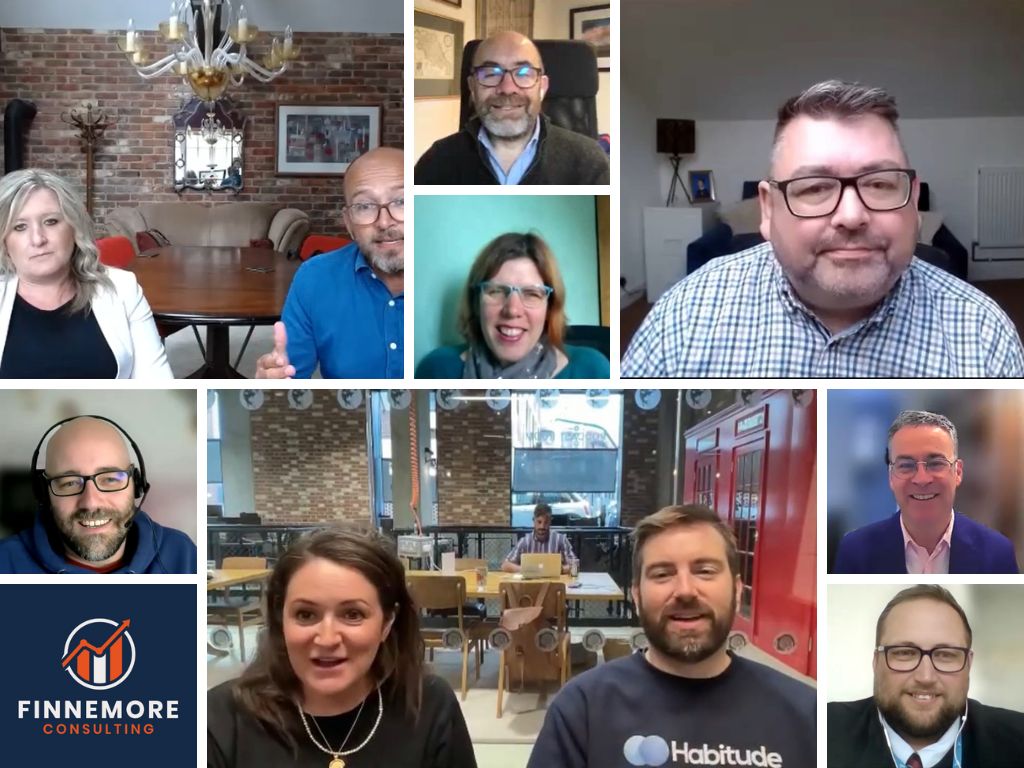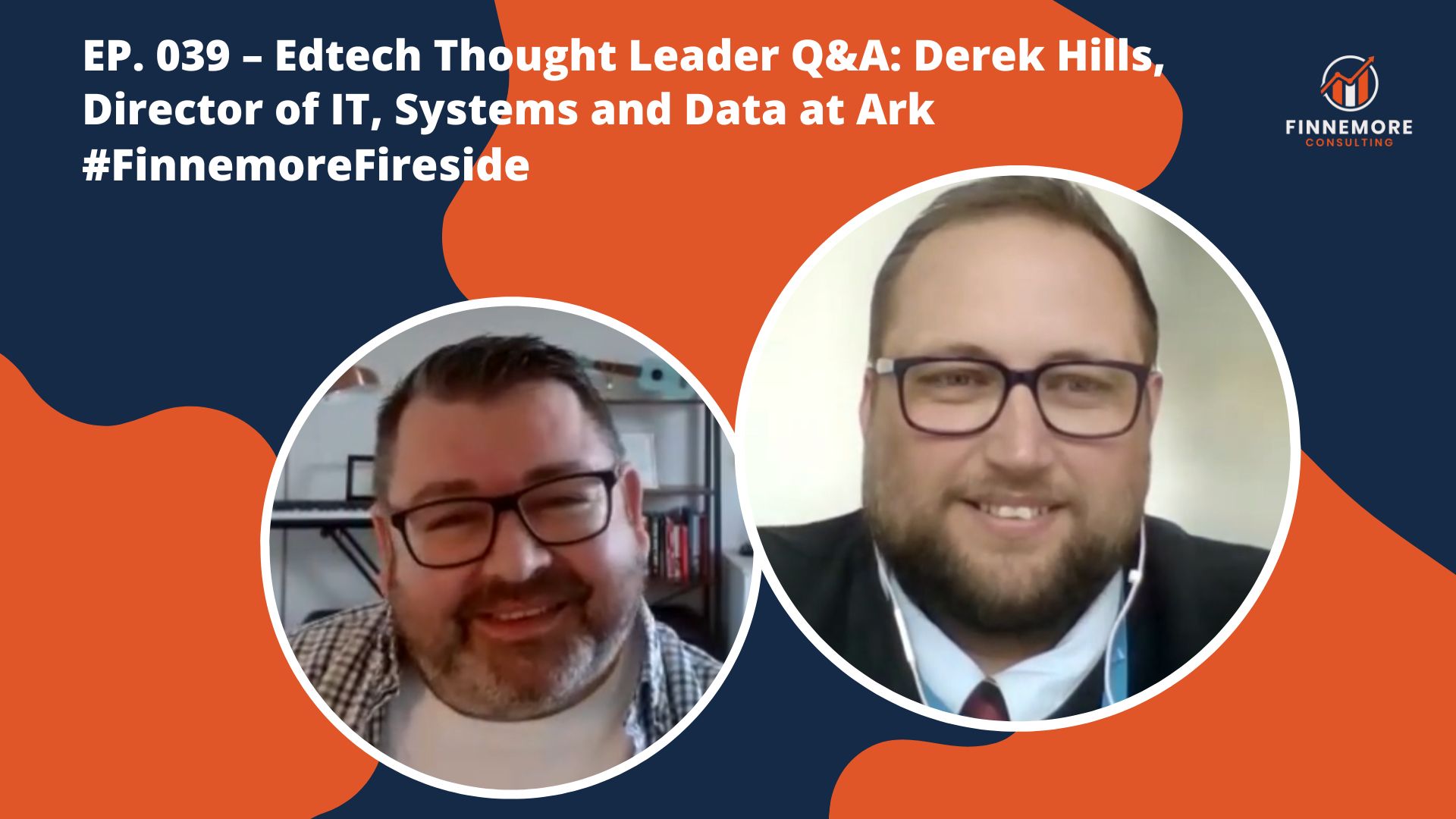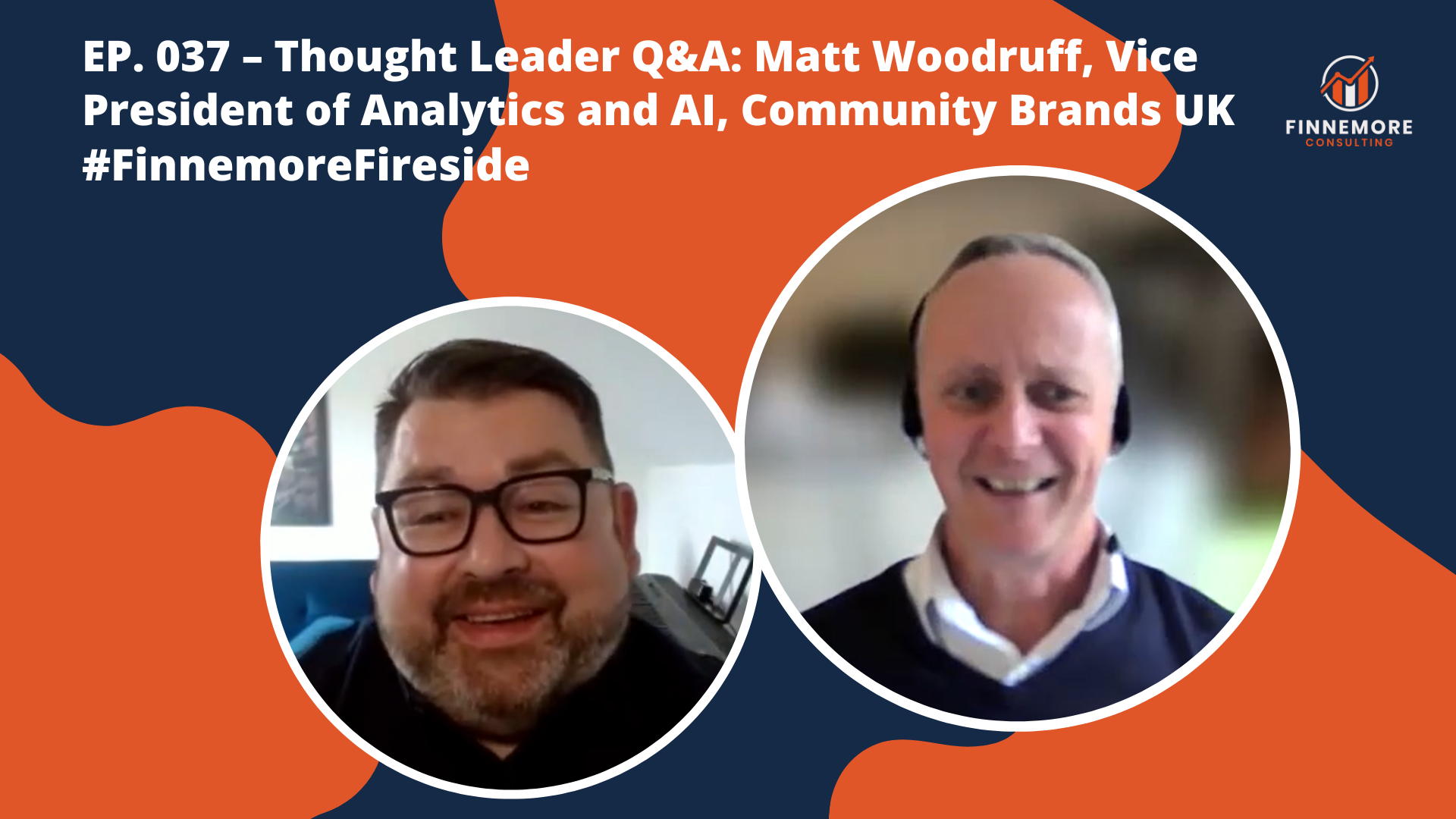We’ve been privileged to speak with even more edtech and industry thought leaders throughout 2023 as part of our #FinnemoreFireside chats, and the insight they continue to provide to us and our community is invaluable.
Thanks to Catherine Tallis of HFL Education, a long-standing provider of MIS support to schools, for discussing how support teams must adapt as the MIS market continues to evolve.
Thanks to Derek Hills from Ark for sharing your views on where you see AI fitting into technology budgets and the broader education landscape, and what the future of MIS might be.
It’s great to speak with thought leaders from government so thank you to Edtech NED, legislator, schools and education expert Jim Knight for your thoughts on the disconnect between the education and labour market, and the need for a school system which truly meets the needs of learners, communities and employers.
Thank you to Chris Kirk of CJK Associates Ltd for your insight into MAT’s needs in terms of vision, strategy, operating models and governance, and what this means for suppliers – both now and in the future.
Our chat with Lyndon Stickley and Sam Curtis of iplicit is essential listening for everyone with an interest in finance as they discuss the importance of change in the education sector and the need for flexibility and adaptability in finance and management systems
Thank you to Ollie Burnett from the school support team in Coventry for talking to us about all the valuable ways they support their schools, including helping them procure and migrate to their new MIS as a group earlier this year.
Finally, we were delighted to speak with Izzi Dorrian and Ed Butcher, founders of the brilliant Habitude workflow platform, for an insightful discussion on the evolving landscape of MATs, the importance of infrastructure, and the need for a clear vision.
As always, we’ve thoroughly enjoyed making the series and are looking forward to a fantastic 2024!
Have a great Christmas break
Best wishes from Sarah & Nick
——————————————————————————-
Subscribe to our YouTube channel and get notified when new videos go live, or join our mailing list for tips on future-proofing, MIS news, growth strategies, and much more.















 I am pleased to be asked to present a session and also chair a further panel discussion on the future of technology and how this will effect Schools, Further Education and Higher Education at
I am pleased to be asked to present a session and also chair a further panel discussion on the future of technology and how this will effect Schools, Further Education and Higher Education at